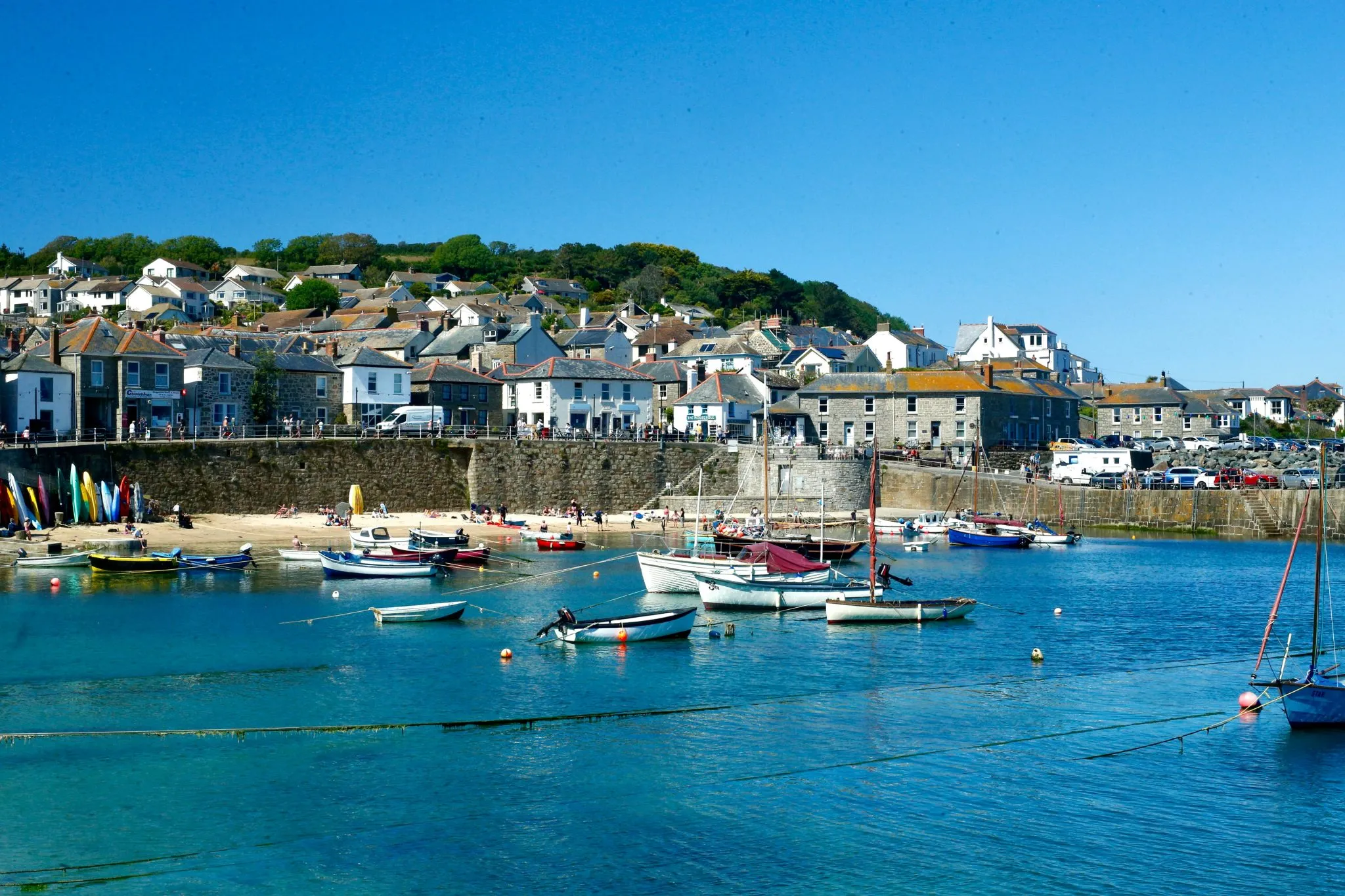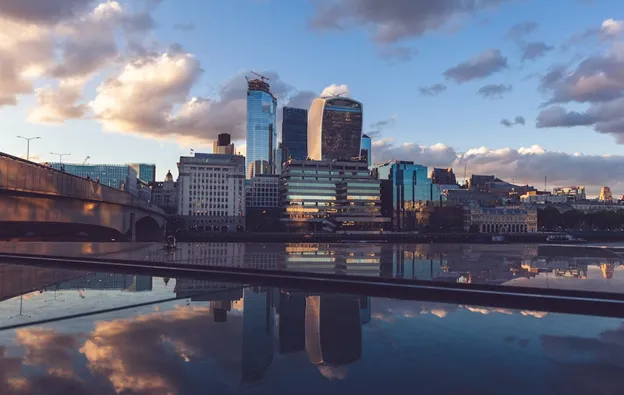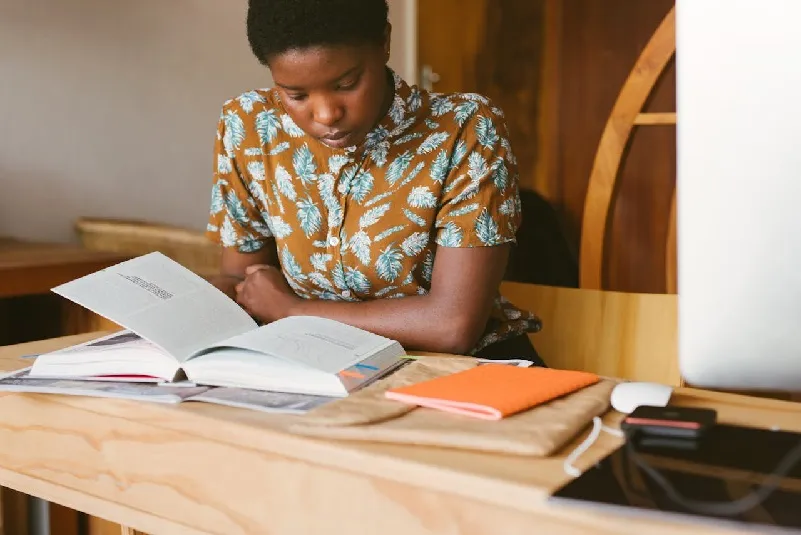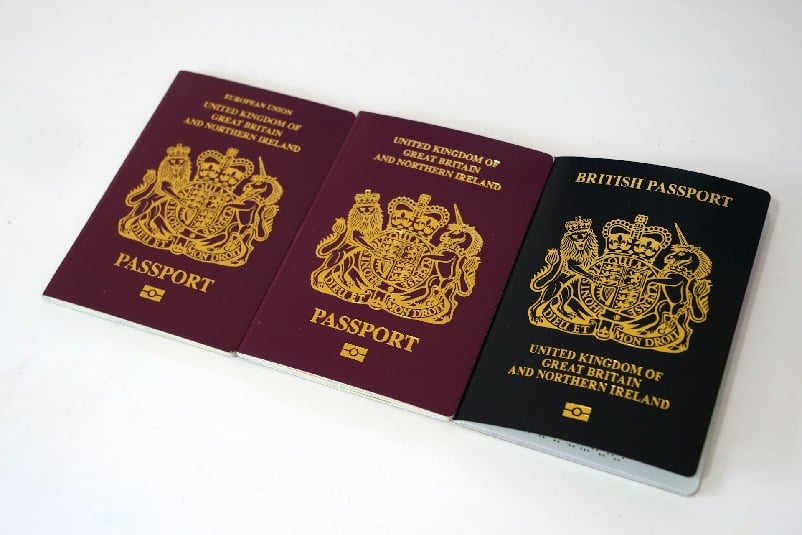Safest Countries to Live in 2025
Safety is fast becoming a dominant factor in the global immigration scenario. With three major wars and numerous local conflicts going on in different parts of the world, it is not difficult to appreciate the immigrants’ rising concern over the safety and security of their life, property and dignity in their chosen destination countries.
If you are contemplating immigrating from your home country in near future, and considering what could be the safest destination for yourself and your family given your personal circumstances, our specialist immigration lawyers and qualified advisers at IAS can assist you. Contact us today on +44 (0)333 414 9244 to explore your options and/or discuss your immigration challenges.
Read our 1001 reviews
The Safest Countries in the World to Move to
Whether a country is safe to move depends on many factors like the level of political stability, any occurrence (or the extent) of war or conflict situation, crime rate, existence or potential of terrorist activities, military expenditure, etc. Climate change is also becoming a growing concern for people looking for a safe life in their destination countries.
In addition, social and cultural ambience can play a major role in determining whether or not a country can be deemed ‘safe’, especially for particular segments of population such as women or people belonging to the LGBTQ+ community. Racial demography of a country can also be a determining factor for certain immigrants while zeroing on their favoured destinations.
Per the Global Peace Index (GPI) 2025, Iceland tops the list as the safest and most peaceful country in the world. The country has held its top rank since 2008. Ireland holds the second position in this list, with New Zealand bagging the third position. The other countries featured in the top 10 list are (rank-wise): Austria, Switzerland, Singapore, Portugal, Denmark, Slovenia and Finland.
Moreover, Norway and Japan rank second and fourth respectively in the level of Societal Safety and Security, one of the three domains considered in the GPI 2025 report (the other two being the extent of Ongoing Domestic and International Conflict, and the degree of Militarisation).
We are going to discuss in detail the conditions prevalent in the top 10 most peaceful countries as well as Japan and Norway in this article, which make them the safest places in the world to live in per the GPI report. However, before proceeding with that, it is important to understand why safety is becoming such a major concern among international immigrants, and not just for asylum seekers or refugees, since the 2020s.
Safety Emerging As a Crucial Factor Behind Immigration Decision
There are a multitude of reasons why people wish to immigrate. Although the actual reasons may vary from case to case, there are a few common factors that usually play major roles behind an immigration decision, such as wider economic opportunities, high public infrastructure standards, a favourable climate, rich culture and heritage, better quality of life, an open and welcoming society, etc.
In some cases, people also immigrate to escape the conflict situations, political oppression, poverty, or recurring natural disasters in their home countries. At least three major wars have been going on in Russia, Gaza and Sudan for nearly 3-4 years now, along with numerous local conflicts taking place worldwide. As of mid-2025, chances of a broader Middle East crisis in the near future cannot also be ruled out.
This geopolitical instability is favouring a growth of right-wing political parties in many parts of the world, and leading to an increase in organised crime such as trafficking in the war-ravaged zones, putting especially the low-income countries at the eventual risk of a governance failure.
The GPI 2025 report has expressed concerns that since the inception of the index, the global peace situation is at its lowest in 2025. Moreover, it has also warned the world community that the conditions leading to widespread conflicts globally are now at the worst since the Second World War.
So, while the conventional factors like economy and healthcare infrastructure are still playing a determining role for immigrants worldwide, it is least surprising that these days many are considering how safe they and their families will be in their chosen destination country before making a move.
The Safest Continent in the World
Europe is the safest continent in the world, although the GPI 2025 finds that its overall peacefulness has been decreasing for the past four years, a trend in line with the overall decline of peacefulness in the world since 2014.
Eight of the 10 most peaceful countries are located in the Western and Central Europe, making it the safest region to live in. Among the top 10 safest cities in the world to live in per the Global Residence Index (GRI) 2025, eight cities are located in Europe, the other two being Singapore and Tokyo (Japan) in Asia.
Moreover, out of the top 10 countries on the global Women, Peace, and Security Index (WPSI) 2023, nine are in Europe. Likewise, there are seven European countries among the top 10 LGBTQ+ friendly countries per the Spartacus Gay Travel Index (GTI) 2025. All of this reinforces the proposition that Europe is by far the safest continent to live in today.
However, Russia, which is a transcontinental country spread across both Europe and Asia, is now the least peaceful country of the world in 2025 followed by Ukraine in Europe, obviously as a result of the ongoing Russia-Ukraine war.
The GPI 2025 report puts Asia-Pacific in second place considering the parameters of peacefulness. The least peaceful region in the world to live in is the Middle East and North Africa per the report, followed by South Asia.
Iceland
A small island country situated in the Nordic region in the North Atlantic, Iceland not only ranks first in the overall GPI 2025 list, but also tops the charts in all three domains considered in the report, making it the safest country in the world to live in. In fact apart from the militarisation parameter (i.e., military expenditure as a percentage of any nation’s GDP), the island nation has shown overall improvement in peacefulness per the GPI 2025.
The island nation has quite a low crime rate as well. Reykjavik, the capital and the largest city in Iceland, features among the top 10 safest cities per the GRI 2025.
A stable democratic government, robust public institutions invoking strong societal trust, and a high-standard public healthcare system are the other major factors that increase Iceland’s appeal to potential immigrants across the world. Moreover, the country often surpasses the World Health Organisation’s guidelines for air quality, and is a role model when it comes to digital security per the Global Cybersecurity Index (GCI) 2024 report.
In addition, Iceland is a staunch supporter of gender equality, and shows a high level of tolerance and acceptance towards the LGBTQ+ community, making it one of the safest countries for women and LGBTQ+ people to travel to or live in.
| Index Name | Rank |
| Global Peace Index 2025 | 1 |
| Positive Peace Index 2024 | 8 |
| Global Cybersecurity Index 2024 | Tier 1 – Role-modelling |
| Global Women, Peace, and Security Index 2023 | 4 |
| Spartacus Gay Travel Index 2025 | 1 |
Ireland
Apart from securing the second position among the most peaceful countries in the world per the GPI 2025, Ireland also ranks among the top five nations in the Militarisation domain, and has improved its position on the Safety and Security parameters compared to past years. Ireland has historically remained neutral in global conflict situations, and its policy of military neutrality forms the core of Ireland’s foreign policy.
Ireland has a low crime rate, with a relatively lower number of violent crimes recorded since the 1998 Good Friday Agreement. Its safe status has further been heightened thanks to the country’s strong democratic institutions, a highly acclaimed educational system, and a robust healthcare infrastructure that is a mix of both public and private options to suit everyone’s needs.
Moreover, it is a liberal country that is deemed safe for women and the LGBTQ+ communities.
| Index Name | Rank |
| Global Peace Index 2025 | 2 |
| Positive Peace Index 2024 | 6 |
| Global Cybersecurity Index 2024 | Tier 2 – Advancing |
| Global Women, Peace, and Security Index 2023 | 13 |
| Spartacus Gay Travel Index 2025 | 5 |
New Zealand
New Zealand has secured the third place among the 163 countries reviewed in the GPI 2025, making it the safest country in the Asia Pacific region. It also ranks among the top five nations in the Ongoing Conflict domain.
The country’s remarkably low crime rate (including cybercrimes) and a robust healthcare system that is either free or subsidised for most of its residents have further increased its appeal among the potential immigrants, notwithstanding the recent affordable housing shortage.
New Zealand has both a strong anti-discrimination legal framework in place to protect the interest of the gender minorities, and an open and inclusive society, making the country a safe place for LGBTQ+ individuals.
However, climate change is a considerable concern for the country’s residents as rising sea levels put the environmental safety of the island nation in question. The New Zealand government is actively working to improve the environmental safety of its people in the near future.
| Index Name | Rank |
| Global Peace Index 2025 | 3 |
| Positive Peace Index 2024 | 7 |
| Global Cybersecurity Index 2024 | Tier 3 – Establishing |
| Global Women, Peace, and Security Index 2023 | 10 |
| Spartacus Gay Travel Index 2025 | 2 |
Austria
Austria is the fourth most peaceful country in the world per the GPI 2025, and features among the top 10 nations in the Militarisation domain. It also scores high as far as the safety of women and the LGBTQ+ individuals in the country is concerned.
In addition, this picturesque country, which is considered the most beautiful place in Europe and thereby attracts a huge number of international travellers, boasts of strong public infrastructure and a low crime rate. Its stable political environment, low levels of internal and external conflicts, and a growing IT sector make it one of the favoured destinations for expats from across the world.
| Index Name | Rank |
| Global Peace Index 2025 | 4 |
| Positive Peace Index 2024 | 17 |
| Global Cybersecurity Index 2024 | Tier 2 – Advancing |
| Global Women, Peace, and Security Index 2023 | 8 |
| Spartacus Gay Travel Index 2025 | 5 |
Switzerland
Switzerland’s policy of neutrality and non-involvement in other countries’ armed conflict, formalised as far back as 1815 and maintained during the two World Wars, makes it one of the safest and most peaceful places in the world to live in.
It ranks fourth (jointly with Austria) in the GPI 2025 list, and features among the top 10 countries in both the Societal Safety and Security and the Ongoing Conflict domains. Zurich, the largest city in the country, ranks 8th among the top 10 safest cities per the GRI 2025 while Geneva bags the 16th place.
| Index Name | Rank |
| Global Peace Index 2025 | 4 |
| Positive Peace Index 2024 | 5 |
| Global Cybersecurity Index 2024 | Tier 2 – Advancing |
| Global Women, Peace, and Security Index 2023 | 2 |
| Spartacus Gay Travel Index 2025 | 3 |
Singapore
Singapore is the 6th most peaceful country per the GPI 2025, and the 7th safest city in the world according to the GRI 2025. The city-state is also among the top five countries in both the Societal Safety and Security and the Ongoing Conflict domains.
Its low crime rate thanks to a very strict law enforcement system, robust infrastructure, and a thriving economic environment make Singapore one of the most favourable places for skilled migrants and business founders and investors in Asia (if not in the world). However, an acute affordable housing shortage and an expensive healthcare system are some of the notable challenges for its residents.
| Index Name | Rank |
| Global Peace Index 2025 | 6 |
| Positive Peace Index 2024 | 14 |
| Global Cybersecurity Index 2024 | Tier 1 – Role-modelling |
| Global Women, Peace, and Security Index 2023 | 15 |
| Spartacus Gay Travel Index 2025 | 15 |
Portugal
Portugal ranks 7th in the GPI 2025, and is at the second place in the Militarisation domain. Its stable political environment, low major crime rate, and LGBTQ+ friendliness make Portugal a great destination for international travellers. However, petty crimes such as pickpocketing or bag-snatching are quite common, especially in major tourist places.
Lisbon, the capital of Portugal, is the 22nd safest city according to the GRI 2025.
| Index Name | Rank |
| Global Peace Index 2025 | 7 |
| Positive Peace Index 2024 | 18 |
| Global Cybersecurity Index 2024 | Tier 1 – Role-modelling |
| Global Women, Peace, and Security Index 2023 | 19 |
| Spartacus Gay Travel Index 2025 | 1 |
Denmark
The ongoing international conflict between Russia and Ukraine and the resultant regional security concerns have made Denmark grow its military expenditure recently. However, the Scandinavian country is still one of the most peaceful places on the earth, and ranks eighth on the GPI 2025. It also ranks 6th in the Societal Safety and Security domain.
A low serious crime rate, stable democratic governance, strong public institutions and a well-established social welfare framework make Denmark one of the safest places to live in 2025. It is the safest country for women per the WPSI 2023, and is very friendly and accepting as far as the LGBTQ+ individuals are concerned.
| Index Name | Rank |
| Global Peace Index 2025 | 8 |
| Positive Peace Index 2024 | 2 |
| Global Cybersecurity Index 2024 | Tier 1 – Role-modelling |
| Global Women, Peace, and Security Index 2023 | 1 |
| Spartacus Gay Travel Index 2025 | 4 |
Slovenia
Slovenia ranks 6th in the Militarisation domain, and overall is the 9th most peaceful country in the world per the GPI 2025. Its history of long-term regional stability, limited military involvement, minimal political instability, strong democratic governance and low rate of serious crimes make it a safe place for its citizens and residents.
| Index Name | Rank |
| Global Peace Index 2025 | 9 |
| Positive Peace Index 2024 | 21 |
| Global Cybersecurity Index 2024 | Tier 1 – Role-modelling |
| Global Women, Peace, and Security Index 2023 | 36 |
| Spartacus Gay Travel Index 2025 | 8 |
Finland
Reduced political terror as well as improved perceptions of criminality have helped Finland secure the 10th position in the GPI 2025 list, and third rank in the Societal Safety and Security domain.
In addition, Finland’s open and inclusive society as well as a strong legal system based on the principles of anti-discrimination make it one of the safest places for LGBTQ+ communities, It is also considered a safe country for solo female travellers (ranks 4th on the WPSI 2023).
| Index Name | Rank |
| Global Peace Index 2025 | 10 |
| Positive Peace Index 2024 | 1 |
| Global Cybersecurity Index 2024 | Tier 1 – Role-modelling |
| Global Women, Peace, and Security Index 2023 | 4 |
| Spartacus Gay Travel Index 2025 | 5 |
Japan
Japan is the 12th most peaceful country per the GPI 2025, but holds the fourth place in the Safety and Security domain, making it one of the safest places in today’s world for its residents.
When it comes to women’s status in society or tolerance towards LGBTQ+ individuals, Japan does lag behind most of the European Union countries. However, solo female travellers and LGBTQ+ people need not fear any act of violence against them as Japan has a very strong law enforcement framework in place.
Instead, what may make Japan a bit unsafe to live in is its history of natural disasters. Earthquakes and typhoons are common occurrences in this island nation located in East Asia, and can cause significant damages to life and property.
| Index Name | Rank |
| Global Peace Index 2025 | 12 |
| Positive Peace Index 2024 | 13 |
| Global Cybersecurity Index 2024 | Tier 1 – Role-modelling |
| Global Women, Peace, and Security Index 2023 | 23 |
| Spartacus Gay Travel Index 2025 | 15 |
Norway
Along with Denmark and Bangladesh, Norway has recorded the largest deterioration in the Militarisation domain in 2025, pushing its overall peacefulness rank down to the 32nd place although it has secured the second place in the Safety and Security domain.
Norway has a stable democratic government, good employment and investment prospects, and a universal social welfare system including a robust public healthcare infrastructure, making it popular among expats.
Although the country has a low crime rate, Norway has witnessed sexual assaults against foreigners and violent gang wars in the past.
| Index Name | Rank |
| Global Peace Index 2025 | 32 |
| Positive Peace Index 2024 | 3 |
| Global Cybersecurity Index 2024 | Tier 1 – Role-modelling |
| Global Women, Peace, and Security Index 2023 | 7 |
| Spartacus Gay Travel Index 2025 | 3 |
Qualities the World’s Safest Countries Have in Common
Safety as an umbrella term that includes personal safety from violence, risk or injury; societal, racial and communal safety within one’s home country; regional safety due to the absence of any conflict situations or war; as well as citizens’ trust on their respective governments.
With slight variations, the countries considered the safest for their citizens, residents and even travellers share certain attributes. According to the Positive Peace Index (PPI) 2024, these include:
- Equitable distribution of resources:
- Education and income equality
- Higher life expectancy
- Equality of opportunity
- Sound business environment:
- Well-defined government policies and regulations
- Strong financial institutions
- High per capita GDP
- High levels of human capital:
- Healthy life expectancy
- High youth participation rate in employment and training
- High numbers of researchers engaged in research and development
- Acceptance of the rights of others
- Gender equality
- Inclusion of different social groups or tiers in the mainstream politics or governance
- Well-functioning government
- Openness and transparency
- Effectiveness
- Rule of Law
- Low levels of corruption
- Strong control over corruption
- Constant monitoring to identify cases of public sector thefts
- Low levels of fragmentation among ruling elites and state institutions along ethnic, class, clan, racial or religious lines
- Free flow of information
- Freedom of the Press
- Government monitoring and control over the spread of false or misleading information
- High rate of internet users and mobile phone and broadband subscribers
- Good relations with neighbouring countries
- Internal laws, policies, and practices to guarantee equal treatment of various population segments
- Free trade
- Large number of international travellers per year
How to Measure Safety in a Country?
The relevant indices use various parameters or indicators to measure the ‘safe’ status of a country or region. Depending on their target group (e.g., women or gender minorities), these indicators also vary. Moreover, their data collection and research methodologies as well as ranking or points systems also vary to a considerable extent.
However, when observed closely, one can see that there is more or less an unspoken consensus among these different indices on how to measure safety in a country. The most common indicators include:
- Conflict situation (ranging from full-scale war, involvement in wars beyond borders to engagement in border conflicts and regional conflicts)
- Militarisation
- Political stability
- Democratic governance
- Public infrastructure (e.g., healthcare, education, etc.)
- Social welfare
- Crime rate
- Law and order situation
- Justice
- Cybersecurity
- Preparedness for climate change impact
- Societal trust
- Gender equality
- Economic well-being (including a balanced distribution of wealth)
- Open and inclusive society, etc.
What Is the Safest Country in the World for Women?
The safest country in the world for women is Denmark, followed by Switzerland, Sweden, Finland, Iceland, Luxembourg, Norway, Austria, the Netherlands, and New Zealand (in that order), according to the WPSI 2023 report.
The WPSI 2023 measures the performances of 177 countries and economies with regard to women’s status using 13 indicators spread across three dimensions: economic, social, and political inclusion of women; justice (including both formal and informal discriminations against women); and women’s security at the individual, community, and societal levels.
Its findings suggest that countries that are safe for women, are also safer, more secure and peaceful countries in the world in general. If we match the WPSI 2023 findings with the GPI 2025 results, this proposition gets further validation. The WPSI 2023 also finds that those countries are also doing better in the areas of democratic governance, overall prosperity of its citizens and residents, and climate change readiness.
What Is the Safest Country for the LGBTQ+ Community?
According to the Spartacus GTI 2025, Canada, Iceland, Malta, Portugal and Spain are the safest countries for the gender minorities. These five countries jointly hold the first place in the GTI rankings, followed by Germany and New Zealand (both in the second position), Australia, Norway, Switzerland, and Uruguay.
The GTI 2025 has been publishing these rankings annually since 2012. The index measures the law and order scenario as well as the living conditions for LGBTQ+ people in countries across the world. There are 18 indicators ranging from having anti-discrimination legislation in place, allowing same-sex marriages and/or civil partnerships, upholding transgender rights to prosecuting LGBTQ+ communities, murders, and even awarding death sentences to gender minorities.
What Is the Safest Country for Me to Immigrate To?
In this article, we have tried to cover the question of safety in today’s world from every possible common angle, and have discussed the current situations in 12 countries along with the parameters that make them the safest places to live in 2025.
However, safety is ultimately a relative world, especially for people who are planning to immigrate to another country for life (or at least on a long-term basis). For example, countries with robust governments and strong legal infrastructure may still have in-built racial undercurrents in its societal structure, which are not easy to prosecute but can make life very difficult for immigrants and their families.
On the other hand, if your destination country’s culture and social norms are quite different from those in your home country where you have been born and brought up, you may find it challenging to integrate into the society of your adopted country unless you have a strong diaspora or an expat community to lean on.
So, choosing the ‘safest’ place for yourself and your family to immigrate to is a more complex question than just comparing the ranks of the various countries on widely-published and reputed indices. Safety is quite a personal matter, the connotation of which varies from person to person. This is an area where you definitely need legal and professional advice.
Our Specialist Immigration lawyers and Advisers Can Help
At IAS, our specialist team of immigration lawyers and advisers has the required expertise and experience not only to assist you with your immigration related legal, administrative and relocation requirements (regardless of the complexity of your case), but also to help you choose the country best suitable for you and your family to live in, depending on your personal circumstances.
We have helped several individuals and organisations with their immigration challenges so far. While it will ultimately be your decision to finalise where you want to move, we can provide the necessary guidance and support all along the way.
IAS is here for you at every step of the process. You might choose from any of our below packages and/or ask for more customizable services as required in your immigration situation:
- The Advice Package: Comprehensive immigration advice tailored to suit your needs and situation
- The Application Package: Legal advice and actual assistance in completing your visa/permit application process
- The Fast-Track Package: A premium service for those on a tight deadline for submitting the visa/permit application
- The Appeal Package: Preparation of your appeal case and full legal representation in any hearings/tribunals on your behalf
To learn more about our full-service offering and how we can help you, please call us on +44 (0)333 414 9244 today to speak to our team of specialist immigration solicitors.
For more information on how we can help with your asylum claim, call us at +44 (0)333 414 9244 or complete our online contact form, and we will contact you.
Table of Contents
Table of Contents will appear here.Legal Disclaimer
The information provided is for general informational purposes only and does not constitute legal advice. While we make every effort to ensure accuracy, the law may change, and the information may not reflect the most current legal developments. No warranty is given regarding the accuracy or completeness of the information, and we do not accept liability in such cases. We recommend consulting with a qualified lawyer at Immigration Advice Service before making any decisions based on the content provided.
Services we Provide
Frequently Asked Questions
Iceland is the safest country for solo female travellers, considering the fact that it is overall the safest place in the world per the GPI 2025, and is also among the top five safest countries for women per the WPSI 2023.
Yes. The United Arab Emirates, El Salvador, Malaysia, and Poland all have improved their safety rankings in the recent past.
The U.S. News and World Report 2024 analysis ranks the following countries as the top 10 countries in the world with best public healthcare systems (in that order): Sweden, Denmark, Germany, Finland, Switzerland, Norway, Canada, the UK, the Netherlands, and Japan.
On the other hand, the CEOWORLD Magazine’s Health Care Index 2024 identifies the following countries as the top 10 with the best healthcare: Taiwan, South Korea, Australia, Canada, Sweden, Ireland, the Netherlands, Germany, Norway, and Israel.
















